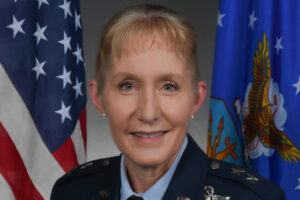What can you learn in a year? Plenty, it turns out, thanks to a spate of new one-year, highly specialized master’s degrees offered by UT, allowing students get in, gobble up knowledge and leave with in-demand business skills.
The learning curve is steep, but rewarding, says Keith Dash, who recently completed the 10-month Master of Science in Finance program, which launched at the McCombs School of Business in summer 2012.
“It’s tough but you definitely learn a lot,” said Dash, looking up from his laptop as he studied outside a classroom last spring. “Looking back to the first semester, we were learning about the basics of finance and now we’re pretty in-depth and learning advanced topics.”
His classmate, Avinash Sridharan, added that the “one and done” format also has pragmatic appeal: “We get out and start making money.”
The programs, also known as fifth-year master’s degrees, are gaining in popularity at UT and nationwide. Enrollment in such programs across the United States doubled to more than 52,000 in the 2010-11 school year from the 2006-07 school year, according to a 2009 article in the Wall Street Journal.
A Master of Science in Business Analytics program, also at McCombs, kicks off this semester, as does a Master of Arts in Economics program in the College of Liberal Arts. And two new leadership degrees join the mix: the Human Dimensions of Organizations (HDO) master of arts degree, run out of the College of Liberal Arts and beginning this fall; and the LBJ School of Public Affairs‘ Executive Master in Public Leadership, which welcomes its first class in May 2014.
Each degree is designed to strategically prepare students for the modern business environment.
“There’s a pretty broad recognition that companies succeed and fail on their ability to unify their employees behind a common mission and serve customers effectively,” says Art Markman, professor in the Department of Psychology and director of the HDO program. “Well, those are people-centered problems.”
There has been strong demand for all the programs from students, according to the program directors. And even better there is demand from companies for the graduates.
Degree Program Details
- 10 months, full-time
- Concentrations available in energy finance, corporate finance or consulting, asset or investment management
- No previous work experience required
Master of Science in Business Analytics
- 10 months, full-time
- Applicants should have strong quantitative and/or technical undergraduate degrees
- Support and recruitment from Walmart, Deloitte Consulting, IBM and Bazaarvoice
- 10 months, full-time
- A strong quantitative background, along with some exposure to economics courses, is expected.
- Economics named by Forbes as a top-10 “Best Master’s Degrees for Jobs”
Master of Arts, Human Dimensions of Organizations
- 18 months, classes on Friday evenings and Saturdays, twice a month
- Focuses on the human side of business, bringing in faculty members from psychology, history, sociology and other liberal arts disciplines
- Created by faculty members with guidance from business leaders at companies such as Procter and Gamble, ING and GSDandM
Executive Master in Public Leadership
- 15 months, courses every other weekend
- Open to applicants with seven or more years of professional experience in management and leadership positions
- Focused on four themes: providing strategic direction through leadership; working with and leading people; business and operational acumen; and strategic awareness, communications and coalition building



